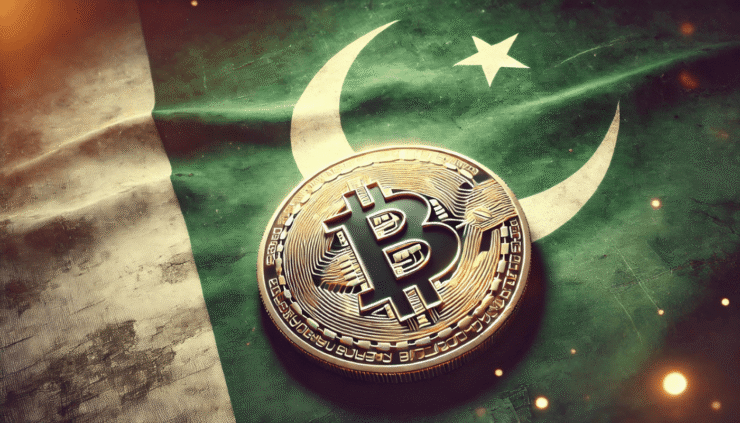Pakistan is making a high-stakes leap into the sovereign crypto space. Speaking at the Bitcoin 2025 conference in Las Vegas, Bilal Bin Saqib—recently appointed as Special Assistant to the Prime Minister on Blockchain and Cryptocurrency—announced that Pakistan will establish its own strategic Bitcoin reserve, becoming one of the first countries in South Asia to pursue such a policy.
The announcement signals a sharp pivot in Pakistan’s digital asset strategy, which until now had been marked by regulatory hesitation. Saqib framed the decision as part of a broader global shift toward treating Bitcoin as a long-term strategic asset, not just a speculative investment. He pointed to recent moves by the Trump administration—particularly the authorization of a U.S. federal Bitcoin reserve—as a key inspiration.
“We are getting inspired by [the U.S. government],” Saqib said on stage.
“We will be holding these Bitcoins and we will never, ever sell them.”
While details on Pakistan’s initial Bitcoin allocation remain undisclosed, the tone of the announcement left no doubt: the country is looking to join the ranks of nations building sovereign Bitcoin treasuries as part of a future-facing financial policy.
Pakistan Taps Bitcoin Mining and AI to Power Economic Push
Pakistan’s strategy doesn’t stop at digital reserves. The country also unveiled plans to allocate 2,000 megawatts of surplus electricity to power Bitcoin mining farms and AI data centers—marking a dual-pronged approach to tech-driven economic growth.
Saqib emphasized that the initiative is designed to generate revenue, create jobs, and attract foreign capital, all while utilizing idle energy resources. The push for AI and mining infrastructure is also expected to support the development of a more modern, tech-oriented digital economy.
With global energy markets facing rising volatility, countries with underutilized or mispriced electricity have increasingly turned to crypto mining as a monetization strategy. Pakistan’s new energy allocation could unlock substantial economic activity while reinforcing the country’s emerging role in digital finance.
Saqib’s involvement in World Liberty Financial—a blockchain initiative with ties to former U.S. President Donald Trump—also suggests that the partnership blueprint between crypto-forward governments is becoming more globalized.
El Salvador’s Bitcoin Gambit Sparks Global Copycat Wave
Pakistan’s move echoes a wider trend catalyzed by El Salvador, which made global headlines in 2021 when it became the first country to adopt Bitcoin as legal tender. Since then, the Central American nation has steadily increased its BTC reserves, now holding over 6,190 BTC, valued at more than $660 million.
While El Salvador has drawn criticism from institutions like the International Monetary Fund, which has warned against further BTC acquisitions amid debt restructuring talks, it has also set off a domino effect. Countries from Argentina to Ghana have floated ideas around crypto-backed sovereign strategies—and now, Pakistan joins the growing list.
The U.S. is leading in both holdings and legislative backing, with approximately 198,000 BTC under government control, mostly via law enforcement seizures, according to Arkham Intelligence. President Trump’s recent executive order formalizing a federal Bitcoin reserve has only accelerated interest among emerging economies.
For Pakistan, a country navigating inflation, energy surpluses, and capital flight, the embrace of Bitcoin—and its fusion with AI infrastructure—signals a serious bid to reposition its economic narrative on the global stage.
Quick Facts
- Pakistan announces plans to create a sovereign Bitcoin reserve, citing U.S. policy as inspiration
- Special Assistant to the Prime Minister Bilal Bin Saqib says the country will “never sell” its Bitcoin
- 2,000 megawatts of surplus electricity to be allocated for crypto mining and AI data centers
- Saqib is linked to World Liberty Financial, a blockchain initiative tied to Donald Trump
- El Salvador, the first country to adopt Bitcoin, now holds over 6,190 BTC in national reserves
- The U.S. government currently controls ~198,000 BTC, according to Arkham Intelligence





